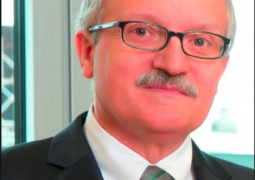Hundreds
of unaccompanied Gambian minors, children under 18 years, in Italy are
benefiting from free education that could eventually see them easily integrated
in Europe and be absorbed into the job market.
Palermo,
the capital city of Sicily, is piloting an educational programme dedicated to
building the potentials of unaccompanied young refugees in various disciplines,
both vocational and academic.
With
this education, hundreds of Gambian minors, among other nationalities, are
beginning to find their feet in a community that welcomes them after a journey
that could have robbed them of their lives.
Clelia
Bertoli, a teacher at one the schools piloting the programme, said many of the
students, the minors, mostly boys, who arrived in Italy burdened by personal
and collective tragedies such as abuse and torture, have now found some space
to live their dreams again.
“The
services for adult education in Sicily have been given the responsibility of
providing a ‘first educational reception’ to the many migrants who attempted
the Mediterranean route,” she said.
She
noted that Sicily Island is probably the region with the highest number of
migrant centres in Europe.
The
young refugees are taught Mathematics, Science, Italian, Technology, History,
Geography, Citizenship and English language and, upon successful completion,
they would be awarded a Middle School Diploma.
Bubacarr,
a Gambian minor undergoing the programme and wished to be identified by his
first name only, said he is trying his best to have the middle school diploma
because without it, he, like other refugees, would not be employed in the
regular job market.
Another
Gambian minor, Muhammed, a 16-year-old, said he intends to have the diploma so
he could use it to study up to university level.
A
report by an Italian organisation, Centri Provinciali per l’Istruzione degli
Adulti (CPIA), said even though the young refugees are in a growing danger of
being exploited or forced into prostitution, they “generally possess great
energy and a strong desire to grow and learn”.
“It
will be difficult to turn them back: their destiny is to remain in the country
where they landed,” the report said.
“Therefore, establishing a welcoming education should be a fundamental
element of the entire reception system. Such a system, depending on how it is
conceived, can have very different outcomes: it can lend itself to becoming a
hotbed of marginalisation or a workshop for citizenship.”
The
CPIA report pointed out that at a first instance, the arrival of migrants is
likely to be an unbearable burden for the area that receives them. Later on, the arrival of the refugees could
become an extraordinary occasion for collective growth, both spiritual and
material.



